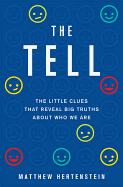As the unofficial movie/TV news correspondent at Shelf Awareness, I spend an unhealthy amount of time scanning "the trades" (Variety, Hollywood Reporter, Entertainment Weekly, Deadline.com, etc.) for bookish showbiz tidbits. This may explain why I'm particularly aware of new books by writers with screen credentials. For example, this week saw the release of S. by J.J. Abrams (Lost) and Doug Dorst; as well as Guillermo del Toro's Cabinet of Curiosities: My Notebooks, Collections and Other Obsessions by del Toro and Marc Zicree.
I noticed the screen/page connection often during my fall regional bookseller trade show pilgrimage, beginning at SIBA in New Orleans with an appearance by George Pelecanos (The Double)--whose impressive TV credits include The Wire, The Pacific and Treme--during the Southern Life Lunch.
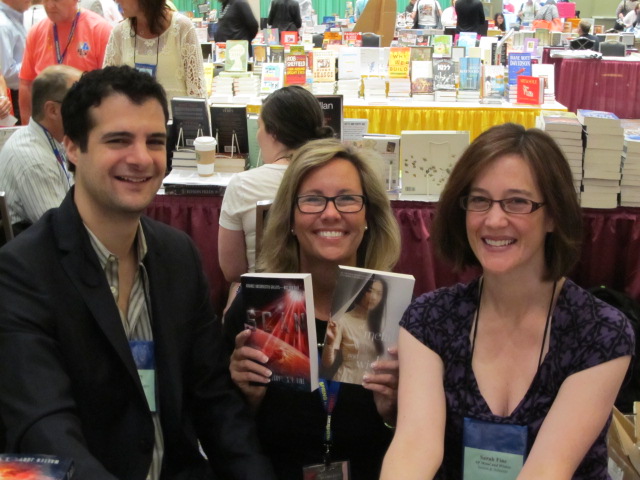 |
| Walter Jury, Julie Schoerke of JKS Communications and S.E. Fine |
There was also a screen-related mystery afoot at SIBA. The book signing for Scan, an upcoming YA novel, featured co-authors Walter Jury and S.E. Fine. At the time, the pseudonymous Jury was not revealing his true identity, but last Thursday the Hollywood Reporter wrote that he is Pouya Shahbazian, "the rep behind New Leaf Literary and Media and a producer on the upcoming YA adaptation Divergent.... He focuses on book-to-film adaptations and has set up numerous projects around town," among them Shadow & Bone and Runner.
Shahbazian told THR he used a pen name because he "wanted to take a stab at it without anyone knowing it was me.... I'm going to be focused on my day job. I love my day job, but I do like the idea of creating something that can be translatable to film and television."
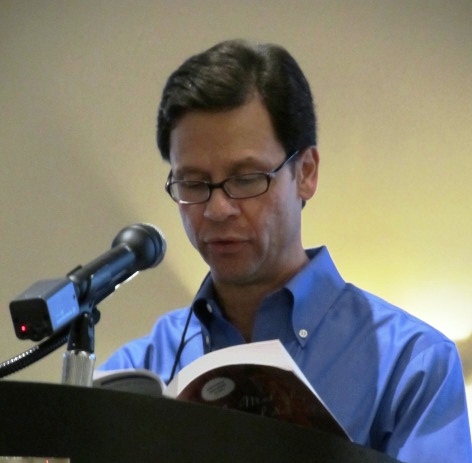 |
Jeffrey Stepakoff reading at SIBA's Parapalooza event
|
Translatability is a key factor when writers shift from screen to book. At the SIBA show, I also met Jeffrey Stepakoff, whose latest novel, The Melody of Secrets, has just been published. Stepakoff's screenwriting credits include The Wonder Years, Sisters and Dawson's Creek, for which he was co-executive producer. I asked him about working in the different forms.
"In some ways, for me at least, developing a novel is very similar to the process of developing an original screenplay or television pilot," Stepakoff said. "In both fiction and screen/scriptwriting, you begin by fleshing out the characters while simultaneously designing the structure. I use the exact same three-act structure for a novel that I use for a screenplay. (TV shows today are five acts.) For fiction I also use the same story construction that I use on a dry erase board in an episodic television story room--opening with an inciting incident (or hook), a series of rising complications, all driving to an inevitable but unexpected climax."
He noted that the difference between the two "lies in the rendering. That is, a television script or a screenplay is really a story map, one which is of course later realized by actors, directors, lighting designers, etc. Whereas a novel is rendered only with language. In many ways, storytelling with fiction is much more challenging. But, there is one thing that fiction does remarkably better than television and cinema. A character in a novel can bring a reader into his or her head, into thoughts and feelings, in a way that actors cannot. Film and television writers must, at the end of the day, rely on actors to impart the fine points of story. As a novelist, I am the actor, and the director, and the lighting designer, as well as the writer."
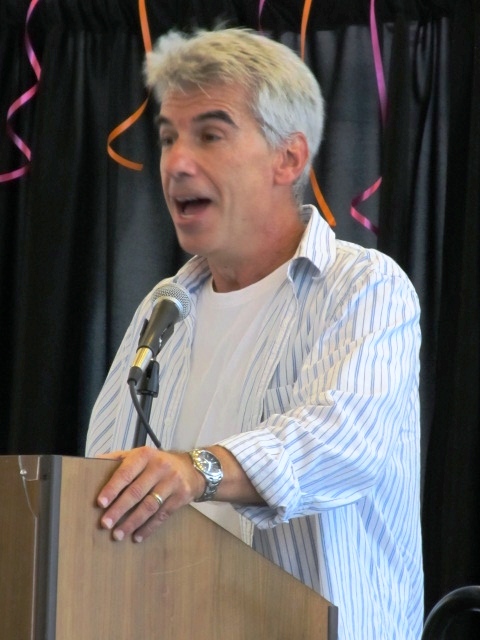 |
| D.J. MacHale |
So how, you may wonder, does a writer for the screen become a writer of books? At the NEIBA fall conference, D.J. MacHale, author of the 10-volume Pendragon series and most recently of SYLO, helpfully shared his own eight-step strategy. MacHale has created numerous successful movies and TV series, including Nickelodeon's Are You Afraid of the Dark and HBO's Encyclopedia Brown, Boy Detective. In his amusing presentation, he advised:
- Avoid writing like the plague. (In school, he would spend weeks making a short film rather than a couple of hours writing a paper.)
- Prepare for the real world. (aka unemployment)
- Find your "waiter's job." (MacHale made industrial/corporate films, learning "how to take a vast volume of boring information and narrow it down.")
- Have an epiphany. (An epiphany is "you're doing something wrong," he said, adding his came when a friend advised him to write screenplays for children's programs.)
- Win awards... or at least get nominated.
- Be sure one of your shows has book spinoffs. (His Are You Afraid of the Dark series paralleled the success of the Goosebumps books)
- Write a book. (or at least a half-baked proposal)
"I hesitate to give you the eighth step," MacHale warned before revealing his ultimate strategy: "Find an author you like, or even one that you don't like. Hunt them down and hound them until they give up the named of their agent and/or editor."
While admitting that his advice was meant to be used for recreational purposes only, he concluded: "One thing that is not tongue-in-cheek is I love to tell stories." And that, it would appear, is the common thread between writing for screen or printed page. --Robert Gray, contributing editor
 AIB was co-founded by the ABA with the American Independent Business Alliance, the American Specialty Toy Retailing Association, the Independent Running Retailers Association, the National Bicycle Dealers Association, the Professional Association of Innkeepers International and Record Store Day.
AIB was co-founded by the ABA with the American Independent Business Alliance, the American Specialty Toy Retailing Association, the Independent Running Retailers Association, the National Bicycle Dealers Association, the Professional Association of Innkeepers International and Record Store Day.





SHELFAWARENESS.0213.S4.DIFFICULTTOPICSWEBINAR.gif)




 The Barnes & Noble store in Merced, Calif.,
The Barnes & Noble store in Merced, Calif., 
SHELFAWARENESS.0213.T3.DIFFICULTTOPICSWEBINAR.gif)
 This weekend, the Society of Children's Book Writers and Illustrators, in conjunction with First Book, is launching its first international
This weekend, the Society of Children's Book Writers and Illustrators, in conjunction with First Book, is launching its first international  Among some of the special items publishers have created for the first
Among some of the special items publishers have created for the first 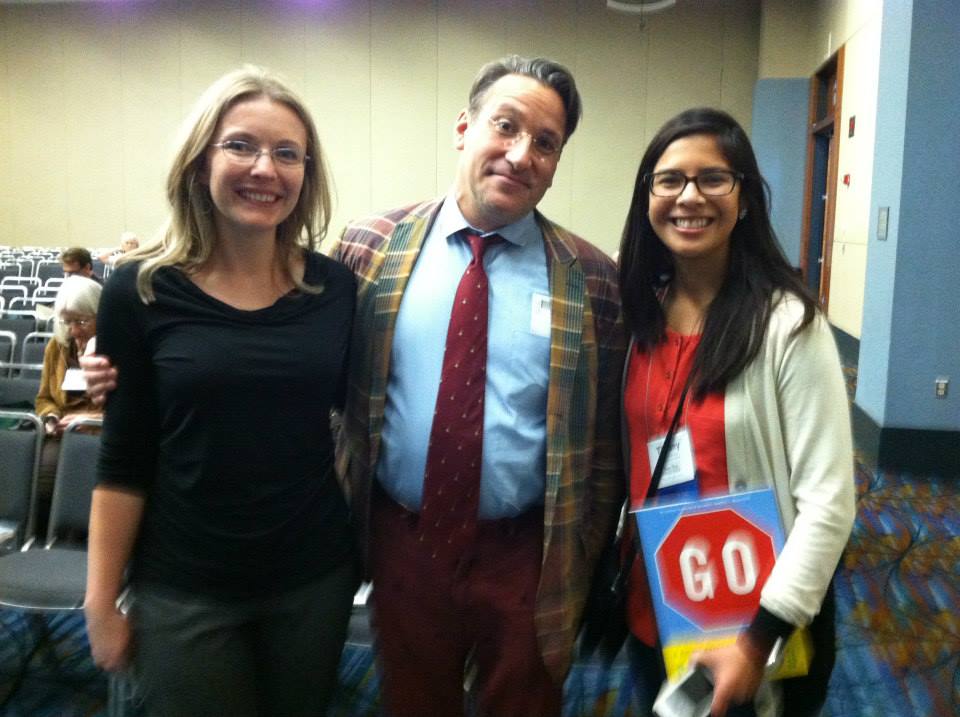 Award-winning book designer Chip Kidd, author most recently of Chip Kidd Go: A Kidd's Guide to Graphic Design (Workman), gave the keynote speech, "Fail Better," at the
Award-winning book designer Chip Kidd, author most recently of Chip Kidd Go: A Kidd's Guide to Graphic Design (Workman), gave the keynote speech, "Fail Better," at the  A
A 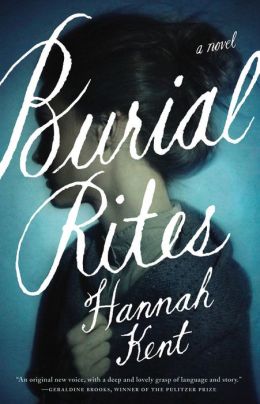 "For more years than I care to count, the things for which I am most thankful have been my family, my friends, my dogs, good wine and good books. While I would be hard-pressed to rank them, I can say that my gratitude for books is currently through the roof. Much of it is due to this month's book buyer's pick, Burial Rites, by first-time novelist Hannah Kent.
"For more years than I care to count, the things for which I am most thankful have been my family, my friends, my dogs, good wine and good books. While I would be hard-pressed to rank them, I can say that my gratitude for books is currently through the roof. Much of it is due to this month's book buyer's pick, Burial Rites, by first-time novelist Hannah Kent. Dead Mountain: The Untold True Story of the Dyatlov Pass Incident
Dead Mountain: The Untold True Story of the Dyatlov Pass Incident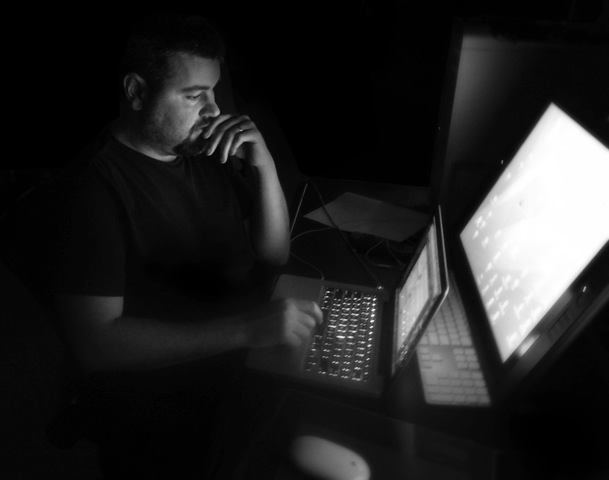 Writer-artist Jonathan Hickman was born in South Carolina and is a graduate of Clemson University. He writes comics like The Avengers for Marvel Entertainment and books, like Pax Romana, Manhattan Projects and The Nightly News. His latest work, East of West, Vol. One: The Promise (Image Comics), with artist Nick Dragotta, is about the Four Horsemen of the Apocalypse failing to bring about the end of the world because one of them falls in love.
Writer-artist Jonathan Hickman was born in South Carolina and is a graduate of Clemson University. He writes comics like The Avengers for Marvel Entertainment and books, like Pax Romana, Manhattan Projects and The Nightly News. His latest work, East of West, Vol. One: The Promise (Image Comics), with artist Nick Dragotta, is about the Four Horsemen of the Apocalypse failing to bring about the end of the world because one of them falls in love. 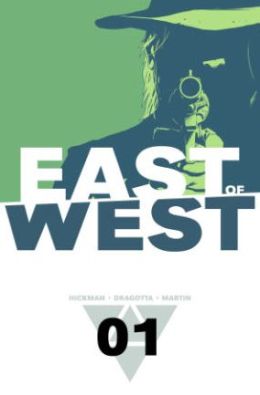 Book you've bought for the cover:
Book you've bought for the cover: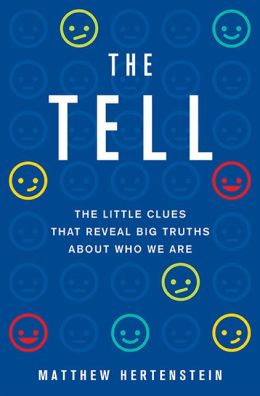 In the lively and likable The Tell, psychologist Matthew Hertenstein synthesizes findings in behavioral and neuroscience to show how the mind filters clues from the most ephemeral and unwitting of facial expressions and behaviors to make predictions about someone's trustworthiness, leadership ability and likelihood of marital success or failure--even the possibility that certain infant behaviors presage developmental disorders such as autism. His goal, he says, is not to make us better predictors, but to make us better observers.
In the lively and likable The Tell, psychologist Matthew Hertenstein synthesizes findings in behavioral and neuroscience to show how the mind filters clues from the most ephemeral and unwitting of facial expressions and behaviors to make predictions about someone's trustworthiness, leadership ability and likelihood of marital success or failure--even the possibility that certain infant behaviors presage developmental disorders such as autism. His goal, he says, is not to make us better predictors, but to make us better observers.